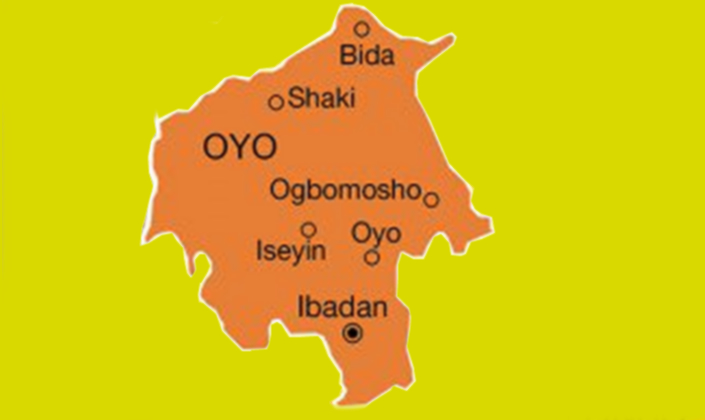The St. Mary Catholic Cathedral, a prominent religious institution located in Oke-Padre, Ibadan, found itself embroiled in a controversy involving allegations of environmental infractions, leading to its temporary closure by the Oyo State Ministry of Environment and Natural Resources. The incident, which unfolded without prior warning, sparked a public debate concerning the ministry’s approach and the church’s alleged environmental violations. Archbishop Gabriel Abegunrin, the head of the Ibadan Archdiocese, expressed his discontent over the ministry’s actions, characterizing the sealing of the cathedral as abrupt and lacking in due process.
The core issue revolves around the ministry’s response to a petition purportedly filed by a neighbor complaining about air pollution and improper sewage disposal emanating from the church premises. According to Archbishop Abegunrin, the ministry’s representatives sealed the cathedral’s restrooms and subsequently chained the main entrance without providing any prior notification or affording the church an opportunity to address the allegations. The Archbishop emphasized that the church was unaware of any formal complaint and was denied access to the petition itself, raising questions about the transparency and fairness of the ministry’s procedures. Further compounding the situation was the imposition of a ₦500,000 fine, which the ministry claimed was a statutory penalty for environmental violations. This sudden and unexpected action disrupted the church’s activities and cast a shadow over its operations.
The Oyo State Ministry of Environment and Natural Resources, under the leadership of Permanent Secretary Sunday Ojelabi, defended its actions, asserting that the closure was justified given the potential public health risks posed by the alleged environmental pollution. Ojelabi confirmed the receipt of a petition detailing long-standing environmental concerns related to the church and maintained that the ministry’s intervention was necessary to protect public health. He also indicated that the church had forcibly reopened the sealed entrance after the initial closure, necessitating further action. Ojelabi emphasized the legality of the ₦500,000 fine, stating that it was a standard penalty prescribed by the government for such violations and was not a discretionary levy imposed by the ministry.
The incident underscores the tension between environmental protection and the rights of institutions, particularly religious organizations. The church contends that it was denied due process and unfairly targeted, while the ministry maintains that it acted in accordance with the law and in the best interest of the public. This clash highlights the importance of clear communication, transparent procedures, and a balanced approach to environmental enforcement that respects the rights of all stakeholders. The ministry’s assertion that it acted swiftly due to a perceived public health emergency also raises questions about the threshold for such interventions and the potential for abuse of power.
The Archbishop’s simultaneous address on World Communications Day adds another layer of complexity to the narrative. While dealing with the immediate crisis of the cathedral’s closure, Archbishop Abegunrin also took the opportunity to address the broader role of media in society. He urged media professionals to utilize their platforms responsibly, promoting messages of hope, unity, and truth. This juxtaposition of the church’s own experience with alleged misrepresentation and the call for ethical media practices underscores the critical importance of accurate and fair reporting, particularly in sensitive situations involving community institutions.
The events surrounding the closure of St. Mary Catholic Cathedral serve as a case study in the challenges of environmental regulation and the delicate balance between enforcing environmental laws and respecting the rights of organizations. The lack of prior notification, the alleged denial of access to the petition, and the abrupt closure raise concerns about due process and transparency. The ministry’s insistence on the legality of the fine and its swift action in the face of an alleged public health emergency highlight the potential for conflicts between regulatory bodies and the entities they oversee. Moving forward, it becomes imperative to establish clear protocols and communication channels to ensure that environmental enforcement is conducted in a fair, just, and transparent manner, minimizing disruptions and fostering cooperation between government agencies and the communities they serve. The incident also serves as a reminder of the power of communication, both its potential for harm and its capacity to promote understanding and reconciliation.


